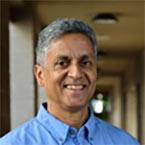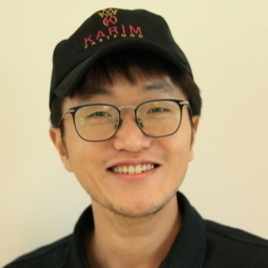Agenda
IEEE SPS Autonomous Systems Initiative
- Wednesday, 30 November 2022
- 17:00-18:00
- zoom
Computational Self-awareness and Self-organization: A Paradigm for Building Adaptive, Resilient Computing Platforms
Dr. Nikil DuttUniversity of California, Irvine

Self-awareness and self-organization have a long history in biology, psychology, medicine, engineering and (more recently) computing. In the past decade this has inspired new self-aware/self-organizing strategies for building resilient computing platforms that can adapt to the (often conflicting) challenges of resiliency, energy, heat, cost, performance, security, etc. in the face of highly dynamic operational behaviors and environmental conditions. I will begin by outlining a computational self-awareness paradigm that enables adaptivity and which supports system resilience. Computational self-awareness is achieved through introspection (i.e., modeling and observing its own internal and external behaviors) combined with both reflexive and reflective adaptations via cross-layer physical and virtual sensing and actuations applied across multiple layers of the hardware/software system stack.
Next I will outline strategies for combining computational self-awareness with self-organization for life-cycle management of dependable distributed computing platforms. Our ongoing NSF/DFG Information Processing Factory (IPF) project applies principles inspired by factory management that combine self-awareness and self-organization for continuous operation and optimization of highly-integrated-but-distributed embedded computing platforms. While each IPF computational component exhibits autonomy through self-awareness, collections of IPF entities can self-organize; the resulting emergent behavior must be controlled to ensure guaranteed service even under strict safety and availability requirements. I will outline two use cases: i) End-to-end computational pipelines for a single autonomous IPF component, and ii) Truck platooning as an exemplar for distributed-but-coupled IPF autonomous systems. The talk will conclude with the opportunities and challenges arising from adopting computational self-awareness and self-organization for making complex computational systems more resilient and self-adaptive.
Zoom link: see below.
Additional information ...Agenda
- Wed, 11 Mar 2026
- 17:30
- Aula Senaatszaal
PhD Thesis Defence

Simin Zhu
Towards Robust Radar Perception in Autonomous Vehicles: Deep Learning Methods for Motion Estimation, Radar Calibration, and Scene Segmentation
- Thu, 30 Apr 2026
- 12:30
- Aula Senaatszaal
PhD Thesis Defence

Yanbin He
Kronecker Compressed Sensing With Structured Sparsity
Algorithms, guarantees, and applications
- Thu, 21 May 2026
- 10:00
- Aula Senaatszaal
PhD Thesis Defence

Yanbo Wang
Compositional Generative Models: for Generalizable Scene Generation and Understanding
building intelligent agents with the flexible, systematic compositional imagination characteristic of human cognition